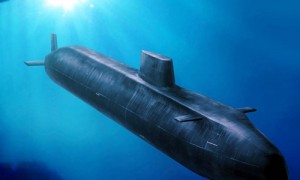by Henry A. Kissinger
亨利·基辛格
The U.S. must protect its citizens from disease while starting the urgent work of planning for a new epoch.
美国必须在为新时代紧急规划的同时,保护其公民免受疾病侵害。
The surreal atmosphere of the Covid-19 pandemic calls to mind how I felt as a young man in the 84th Infantry Division during the Battle of the Bulge. Now, as in late 1944, there is a sense of inchoate danger, aimed not at any particular person, but striking randomly and with devastation. But there is an important difference between that faraway time and ours. American endurance then was fortified by an ultimate national purpose. Now, in a divided country, efficient and farsighted government is necessary to overcome obstacles unprecedented in magnitude and global scope. Sustaining the public trust is crucial to social solidarity, to the relation of societies with each other, and to international peace and stability.
新冠肺炎大流行的超现实氛围让我想起了年轻时在第84步兵师参与二战突出部战役的经历。今天的情况就像1944年底的时候,能感觉到有一种危险正步步进逼。这种危险并不针对某个特定的人,而是进行随机的毁灭性打击。但当今时代与那个遥远时代之间有一个重要的区别。那时,终级的国家目标使美国人的耐力得以增强。现在,在一个分裂的国家,需要高效且有远见的政府来解决波及全球、规模空前的种种困难。维护公众信任对社会团结、不同社会间关系及国际和平与稳定都至关重要。
Nations cohere and flourish on the belief that their institutions can foresee calamity, arrest its impact and restore stability. When the Covid-19 pandemic is over, many countries’ institutions will be perceived as having failed. Whether this judgment is objectively fair is irrelevant. The reality is the world will never be the same after the coronavirus. To argue now about the past only makes it harder to do what has to be done.
国家的团结和繁荣建立在这样一种信念之上:国家体制能够预见灾难、抑制其影响并恢复稳定。到新冠肺炎大流行结束时,许多国家的体制会被视为是失败的。这种判断是否客观公正无关紧要。现实就是,此次疫情过后,世界将彻底改变。现在还纠缠于对过去的争论只会让我们更难去做此刻该做的事。
The coronavirus has struck with unprecedented scale and ferocity. Its spread is exponential: U.S. cases are doubling every fifth day. At this writing, there is no cure. Medical supplies are insufficient to cope with the widening waves of cases. Intensive-care units are on the verge, and beyond, of being overwhelmed. Testing is inadequate to the task of identifying the extent of infection, much less reversing its spread. A successful vaccine could be 12 to 18 months away.
新冠病毒的攻击规模和凶残程度都前所未见。感染人数指数级增长:美国的确诊病例每五天就翻一番。就在我撰写这篇文章的时候,该病依然无药可医。医疗物资不足以应付不断增长的病例。重症监护病房已接近饱和,甚至不堪重负。目前的检测不足以确定感染的规模,更不用说逆转病毒传播了。成功研制出疫苗可能还需要12到18个月。
The U.S. administration has done a solid job in avoiding immediate catastrophe. The ultimate test will be whether the virus’s spread can be arrested and then reversed in a manner and at a scale that maintains public confidence in Americans’ ability to govern themselves. The crisis effort, however vast and necessary, must not crowd out the urgent task of launching a parallel enterprise for the transition to the post-coronavirus order.
美国政府在避免灾难即刻暴发方面做了扎实的工作。最终的考验将是能否阻止病毒的传播且一举扭转局势,这种扭转无论在方式还是规模上都要能保持公众对美国人自我治理能力的信心。无论抗击这场危机需要付出多大的努力、有着怎样的必要性,都不应漏掉这项紧急任务——建立向新冠肺炎疫情后的新秩序转变的平行机制。
Leaders are dealing with the crisis on a largely national basis, but the virus’s society-dissolving effects do not recognize borders. While the assault on human health will—hopefully—be temporary, the political and economic upheaval it has unleashed could last for generations. No country, not even the U.S., can in a purely national effort overcome the virus. Addressing the necessities of the moment must ultimately be coupled with a global collaborative vision and program. If we cannot do both in tandem, we will face the worst of each.
各国领导人主要是在国家层面上处理这场危机,但这种病毒对社会的毁灭作用不分国界。虽然病毒对人类健康的攻击将是——希望是——暂时的,但它所引发的政治和经济动荡可能会持续几代人。没有一个国家,包括美国,可以凭一己之力战胜病毒。要应对当前亟需解决的问题,最终必须要融入全球合作的愿景和计划。如果我们不能同时做到这两点,我们将面临两方面最坏的结果。







